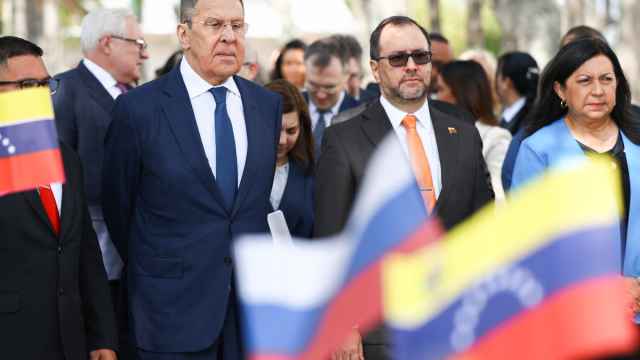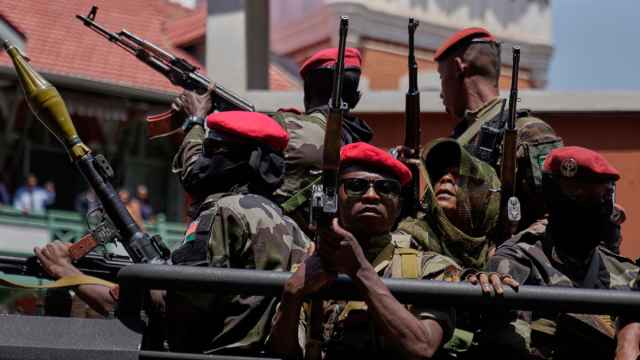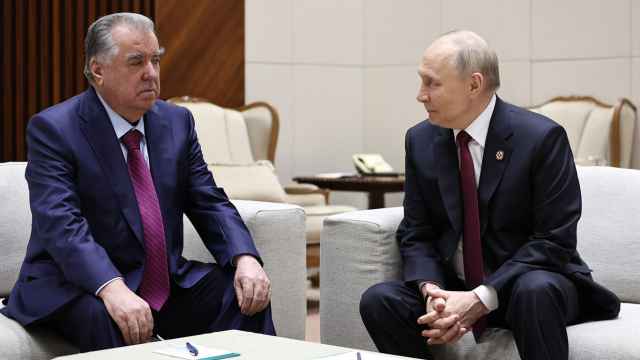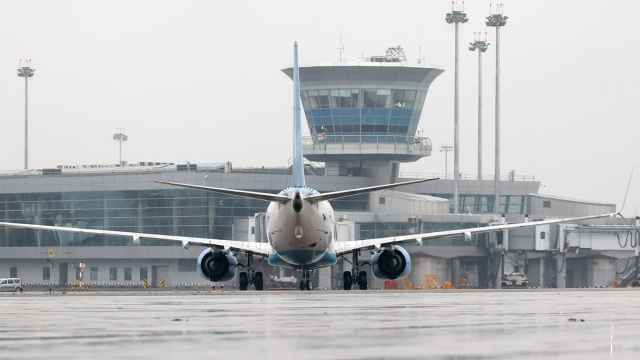WASHINGTON — Russia and the United States are planning a regular exchange on "technical threats" that appear to come from computers in each other's territories, a White House spokeswoman said Friday, even as bilateral ties have come under growing strains.
A range of mechanisms aimed at confidence building and crisis prevention are being planned to cope with alarming events in cyberspace, said Caitlin Hayden, a spokeswoman for the White House National Security Council.
These include "regular exchanges on technical threats that appear to emanate from one another's territory" as well as "no-fail communications mechanisms to help prevent crisis escalation and build confidence," she said in an e-mailed reply to a query.
Some such links have existed for years, including the Nuclear Risk Reduction Center, but others are "cyber-specific and would begin working with Moscow for the first time," Hayden said, without giving a projected start date.
A representative of the Russian Embassy in Washington did not return a phone call seeking comment.
Vice President Joe Biden said last month that the United States was working with Moscow to link computer emergency response teams and the nuclear risk reduction centers and setting up lines of communication in case of "an alarming incident."
"It's a great deal harder to assess another nation's cyber-capabilities than to count their tanks," he told the London Conference on Cyberspace on Nov. 1 by videocast.
Howard Schmidt, the White House cybersecurity coordinator, said in a July 12 blog that the United States and Russia planned to have three types of cybersecurity-related cooperative mechanisms in place by the end of this month, including special "24/7" communications links.
Hayden, the spokeswoman, declined to spell out the status of the talks with Russia, referring only to "ongoing diplomatic discussions." No such links were being announced for now with China or any other country, she said.
Strains between Washington and Moscow over disputed State Duma elections are threatening U.S. President Barack Obama's "reset" policy, and the two countries remain at odds over NATO missile defense plans in Europe.
In another sore point, a U.S. intelligence report to Congress in October said Russia's intelligence services "are conducting a range of activities to collect economic information and technology from U.S. targets."
"We judge that the governments of China and Russia will remain aggressive and capable collectors of sensitive U.S. economic information and technologies, particularly in cyberspace," said the Office of the National Counterintelligence Executive, a U.S. intelligence arm.
Schmidt, in his blog, did not speak of any attempt to reduce the risk of spying but rather of heading off threats to both sides such as "botnets," a collection of computers that can be used to swamp a web site with incoming traffic or other malicious action.
Another goal, he said at the time, was to better understand each other's military view on operating in cyberspace.
"It's a prime example of the 'reset' in relations taking on a new and important dimension," Schmidt wrote then.
A Message from The Moscow Times:
Dear readers,
We are facing unprecedented challenges. Russia's Prosecutor General's Office has designated The Moscow Times as an "undesirable" organization, criminalizing our work and putting our staff at risk of prosecution. This follows our earlier unjust labeling as a "foreign agent."
These actions are direct attempts to silence independent journalism in Russia. The authorities claim our work "discredits the decisions of the Russian leadership." We see things differently: we strive to provide accurate, unbiased reporting on Russia.
We, the journalists of The Moscow Times, refuse to be silenced. But to continue our work, we need your help.
Your support, no matter how small, makes a world of difference. If you can, please support us monthly starting from just $2. It's quick to set up, and every contribution makes a significant impact.
By supporting The Moscow Times, you're defending open, independent journalism in the face of repression. Thank you for standing with us.
Remind me later.





